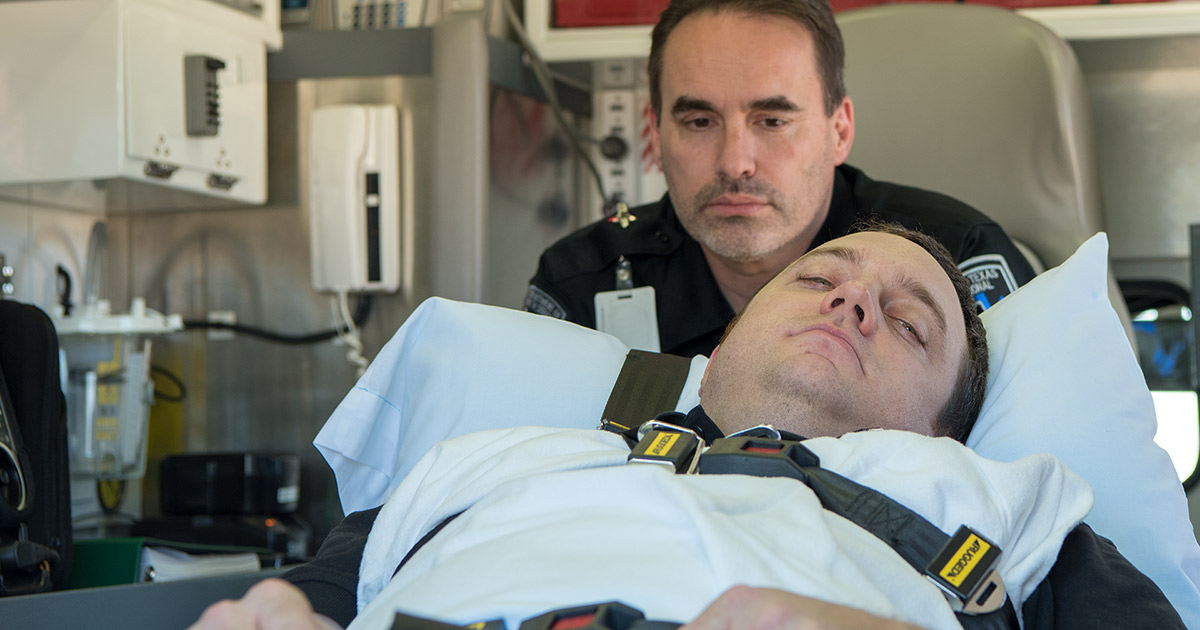Pulsara Around the World - February 2026
January Recap The start of 2026 was on the slow side for our events schedule, with our team heading to the Florida Fire & EMS Conference, the...

EDITOR'S NOTE: Special thanks to Kinsie Clarkson (Pulsara's Product Marketing Specialist, 2020-2025) for writing today's blog post. You can connect with her on LinkedIn.
__
Every year, millions of people around the world die from sepsis. The CDC estimates that at least 1.7 million adults in America develop sepsis every year, and that 1 in 3 people who die in hospitals have sepsis.
Similar numbers are reflected in other areas of the world. Although the global impacts of sepsis are difficult to measure, a study published in early 2020 estimated that in 2017, there were 48.9 million cases and 11 million sepsis-related deaths worldwide. That’s almost 20% of all global deaths.
Given that sepsis is both treatable and preventable, these numbers are staggering. Why is the death toll from sepsis so high?
The question is one of awareness. Sepsis is not as well known as other time-sensitive emergencies, and fewer people—patients and healthcare providers alike—know the symptoms, or even think to suspect it as a possibility. Sepsis can initially look like the flu, gastroenteritis, or a chest infection, making it difficult to definitively identify the symptoms quickly. Last week, the 2020 Sepsis Alliance Annual Survey found that only one-third of adults are aware that sepsis is a potential complication of COVID-19.

September is Sepsis Awareness Month, and World Sepsis Day occurs on September 13th. Around the world, organizations like the UK Sepsis Trust are working to promote awareness about sepsis. They're urging patients and clinicians alike to “just ask: could it be sepsis?”
Sepsis occurs when the body responds abnormally to an infection. While the immune system typically works to fight germs and prevent infection, sometimes the immune system overreacts, instead attacking organs and other tissues. Sepsis can lead to tissue damage, organ failure, and death.
And while COVID-19 does not directly cause sepsis, it can lead to it. Sepsis arises from the body’s attempts to fight off infection—which means that if you have or have had COVID-19, you are at a higher risk of contracting sepsis. The UK Sepsis Trust estimates that in the UK alone, as many as 20% of patients discharged from the hospital after having COVID-19 could develop sepsis within 12 months.
Given those sobering stats, it’s more important than ever to raise awareness about sepsis and its devastating consequences. That’s why the UK Sepsis Trust is seeking to educate people about the deadly consequences of sepsis.
“This is just about communication,” said UK Sepsis Trust founder Dr. Ron Daniels. “It’s about health professionals thinking sepsis, and a public who are empowered to just ask: ‘could it be sepsis?’ If we get those two things right, we can save thousands more lives every year.”
For the best chance at early identification and treatment, it’s important to know the signs and symptoms of sepsis.
Adults with sepsis may exhibit these symptoms:
In children, sepsis can manifest through these symptoms:

Additionally, children under 5 may have sepsis if they are not feeding, vomit repeatedly, or have not passed urine for 12 hours.
For more information on identifying and treating sepsis, check out the following resources:
As a part of their 2020 campaign to raise awareness, the UK Sepsis Trust created Cycle4Sepsis, a virtual fundraiser taking place during the entire month of September. Participants can sign up to ride solo or with family and friends, and may select whether they want to follow the goals set by the UK Sepsis Trust or customize their own.
Awareness is the first step toward saving lives. By empowering clinicians and patients alike with the signs, symptoms, and the knowledge to speak up, we can help ensure that people are equipped to recognize sepsis—and treat it—when it strikes.
Want to learn more about how Pulsara can help you fight sepsis? Check out our page on Pulsara + Sepsis.

January Recap The start of 2026 was on the slow side for our events schedule, with our team heading to the Florida Fire & EMS Conference, the...

Recent research shows how Pulsara was successfully leveraged to connect more than 6,000 COVID-19 patients to monoclonal antibody infusion centers via...

At Pulsara, it's our privilege to help serve the people who serve people, and we're always excited to see what they're up to. From large-scale...